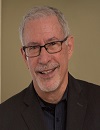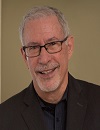Day 1 :
Keynote Forum
Andrew J Ashworth
Bonhard Medical Ltd, UK
Keynote: The Ashworth-Dutton neurobiological model of psychological trauma: Including the da Vinci gaze resolution method
Time : 09:30-10:15

Biography:
Abstract:
Keynote Forum
Paolo Scapellato
European University of Rome, Italy
Keynote: Treatment of anxiety and stress in the cognitive causal approach
Time : 10:15-11:00

Biography:
Abstract:
Keynote Forum
Hanan Sheikh Ibrahim
CCLCM - Case Western Reserve University, USA
Keynote: A case of unrecognized obstructive sleep apnea manifested with depressive and neuro behavioral symptoms
Time : 11:15-11:55

Biography:
Hanan Sheikh Ibrahim received her MD from Damascus University, Syria where she specialized in Pulmonary Medicine then she moved to US where she completed her residency in Internal Medicine at the University of Pittsburgh School of Medicine in Pittsburgh, Pennsylvania, US. She completed her Fellowship in Geriatric Medicine at Cleveland Clinic, Ohio, USA and is board certified in Internal & Geriatrics Medicine. She is a Clinical Assistant Professor at the Cleveland Clinic Lerner College of Medicine of Case Western Reserve University, Ohio (USA), a Consultant Physician, Quality Officer and Academic Lead at the Cleveland Clinic Abu Dhabi. She was trained at Cleveland Clinic in Ohio, USA under the tutelage of Doctor Robert Palmer, concept originator of the Acute Care of Elderly (ACE) unit which was modeled internationally. She pioneered in the geriatric care in the UAE by establishing the first MACE unit and the first Geriatric Core Curriculum for resident physicians in training.
Abstract:
52-year-old male, retired HR manager, ex-smoker with past medical history of obesity, type 2 diabetes, dyslipidemia and hypertension was presented with two years history of fatigue, poor concentration, persistent depressive symptoms insomnia, anxiety and morning headache. His insomnia is described as difficulty maintaining a good sleep due to sudden frequent arousals; he denied history of choking or severe gastroesophageal symptoms. He has history of prolonged snoring. He was against using any long-term sedatives. The following examination conducted showed the results as follows: 1. Physical exam was significant for BM 31. 2. GDS 6/10, HAMD was 6, SLUMS 25/30. 3. Impaired attention and track A/B test; PHQ10 score: 6 without functional impairment. 4. ESS was 11 and the insurance declined sleep studies. 5. Sleep diary average: 2-3 hours interrupted total sleep at night. After one year, he was noted to have worsening of his fatigue, memory, insomnia and mood. A request for polysomnography was finally approved and revealed sever, OSA with AHI above 48, the patient was placed on CPAP and his sleep quality improved on his sleep diary with average of 6 hours per night, his insomnia and depressive symptoms improved as well as his blood pressure control. his follow up PHQ10 is almost 1; his SLUMS test improved to 27; his GDS is 01/15; attention and track A/B test improved. Sleep apnea and depression can be bidirectional and depressive symptoms may pose a huge impact on compliance to CPAP treatment and subsequently on depressive symptoms control. Depressive symptoms and insomnia can overlap with sleep apnea diagnosis; physicians may fail to recognize OSA during clinic visits. Failure to identify and treat sleep apnea would put the patient at risk for cardiovascular, cerebrovascular complication and resistant to treat depression. Several studies showed improvement in depressive and neuro behavioral symptoms in addition to improvement in metabolic markers with CPAP therapy.
- Workshop
Location: Eifel
Session Introduction
Robert M Gordon
American Psychological Association, USA
Title: Anxiety and depression as expressions of personality syndromes
Time : 12:00-12:45

Biography:
Abstract:
Statement of the Problem: Anxiety and depression are often viewed in terms of just symptoms when they may be personality syndromes. They can be life long styles of personality, which require a different type of treatment. The Psychodynamic Diagnostic Manual -2 (PDM-2) is a new taxonomy that has reformulated mental disturbances. The PDM-2 includes Anxious and Depressive personality syndromes. The Personality Syndromes in the PDM-2 are: Depressive, Dependent, Anxious, Obsessive and Compulsive, Schizoid, Somatizing, Hysterical, Narcissistic, Paranoid, Psychopathic, Sadistic, and Borderline Personalities. They are arranged in order from internalizing to externalizing. Each personality syndrome may be organized at the neurotic, borderline or psychotic levels. The PDM-2 uses the Psychodiagnostic Chart-2 as an assessment tool (PDC-2, search for a copy to help understand and score the PDM-2). Robert Bornstein and I developed the PDC so that practitioners could easily operationalize the PDM-2. The PDM-2 also assesses mental functions. For example, no two people with depression will have the same prognosis since they may differ in such mental functions as insightfulness, ability to relate, ability to learn and so on.
Methodology & Theoretical Orientation: Although the PDM-2 is based in psychodynamic theory, the taxonomy is based on empirical research and the taxonomy has been found to be helpful to practitioners of all the major theoretical orientations.
Conclusions & Significance: When anxiety and/or depression are personality syndromes, they often do not respond well to medications or psychotherapies that just focus on the symptoms. That is because the anxiety and depression are part of who the person is, rather than just what they have.
Recommendations: A through psychological assessment and a PDM-2 formulation is needed to help determine if the anxiety and depression are symptoms (as in an adjustment disorder) or if they are personality syndromes. The latter requires long-term work on identity for any lasting changes to occur.
Image

Mike Lawrence
London Metropolitan University, UK
Title: How to alleviate work stress: The importance for organizations to implement a more holistic view of the employee to alleviate stress
Time : 12:45-13:30

Biography:
Mike Lawrence is a highly experienced senior manager gained within the private and public sector namely cosmetic, IT, civil service and leisure industries coupled with an insatiable passion and background in holistic therapy spanning 15 years, which lead to the opening of his successful holistic therapy clinic in the UK. His energic, modern and forward-thinking techniques are underpinned by studying the works of Sigmund Fraud, Milton Erickson on psychanalysis and Dr Thurman Fleet he was an amazing chiropractic healer and teacher of metaphysics who called his work concept therapy which had the effect of stress relief in the body.
Abstract:
Statement of the Problem: Britain in the grip of a stress epidemic because of 'always on' workplace culture. 73% of UK employees suffer from work related stress, leading to an annual £57 bn loss in productivity and 49% of all working days lost in 2016-2017. However, since the publication of the guide implementing a European Social Partner agreement in 2014 jointly drawn up by the CBI, TUC, CEEP UK, FPB HSE and the DTI the levels of stress are still on the increase.
Purpose: The purpose of this study is to describe what should be done in order to tackle this growing epidemic.
Methodology & Theoretical Orientation: Provide employers and employees with a framework of measures which will identify and prevent problems of work-related stress and help to manage them when they do arise. Under the agreement, the responsibility for determining the appropriate measures rests with the employer. These measures are carried out with the participation and collaboration of workers. These measures can be collective, individual or both. They can be introduced in the form of specific measures targeted at identified stress factors or as part of an integrated stress policy encompassing both preventive and responsive measures.
Conclusion & Significance: As the work environment continues to shift and grow, it is increasingly important for organisations to take on and implement a more holistic occupational fulfilment view of the employee. Identifying the triggers of stress and providing coping mechanisms for employees. Employees would feel more positive towards their employer if they were offered better health and wellbeing benefits good line management and a supportive team. However there’s also evidence that when employees perceive that they’re ‘cared for,’ they are happier and better employees.
Image

- Sessions: Stress | Stress Therapies | Sexual Abuse and Substance Use Disorders | Depression | Insomnia | Schizophrenia and Bipolar Disorder | Work Stress
Location: Eifel

Chair
Robert M Gordon
American Psychological Association, USA

Co-Chair
Paolo Scapellato
European University of Rome, Italy
Session Introduction
Verena Hein
4academy, Germany
Title: Implications of the polyvagal-theory for counseling, coaching and therapy and a new concept for the activation of the social engagement system
Time : 13:30-14:00
Biography:
Abstract:
Counseling, coaching and short-term therapy became more and more popular in Germany. The problems, wishes, requirements are varying in a wide range as well as the personalities, fates and experiences of the clients. It is challenging to build up a trustful client-coach-relationship in several hours, sort the demands of the clients, identify the main problem and root cause, find the best fitting technique and accompany the client through the process. Some clients report serious life events, negative experiences, irrational behavior and anxiety. Sometimes clients change their view on their problems, have strong negative emotions, produce transference, feel fury and become unstable during the coaching process. Although this is a progress it lowers the capability of the client for effective goal-oriented work and cost time. The Polyvagal-Theory describes the three stages of the autonomous system the frozen state (dorsal vagus nerve), the flight-fight state (sympathicus) and the social engagement system SES (ventral vagus nerve) activation. Clients exhibit a preferred activation state for example the permanent action-oriented/fight mode of workaholic. The problems which suffer a client are mostly coupled with one of the flight-fight-freeze stress reaction which means with the dorsal vagus nerve or sympathicus activation. For the coaching process which bases on positive social interaction and re-learning with positive emotions the SES state is the most effective. This state can be reached quite quickly by safety mediating instructions and embodiment techniques which activates the SES related brain nerves. In contradiction to existing procedures positive affirmations and relaxation will not be used in the beginning of the process. The paper will explain the implications of the Polyvagal-Theory for effective short-term counseling (coaching) and therapy investigations and it will present a concept for the activation of the SES in an early stage of the work with the clients.
Image

Figure: 1: EmpAtECS ® to change psychological states.
Maria Teresa Aydemir
Eastern and Central European Community of Jungian Analysts (ECECJA), Poland International Association for Analytical Psychology, Poland
Title: Snow white-a life in the midst of emotional dwarfs: A clinical case study of longterm psychotherapy of a recurrently sexually abused patient
Time : 14:45-15:15

Biography:
Maria Teresa Aydemir is a Certified Jungian Analyst, Clinical Psychologist and Individual and Group Analytical Psychotherapist with over 20 years of clinical experience in the field of Psychotherapy and Psychological Assessment. She majored in long-term analytical psychotherapy of patients suffering from various conditions linked to traumatization. During several years, she worked in the health mental clinics in the Upper Silesian Region in south-western Poland. She is currently working only in her own private practice in Katowice, Poland. She is an Individual Member of the International Association for Analytical Psychology and a Founder-Member and the President of the Board of Directors of the Eastern and Central European Community of Jungian Analysts. She is also a President of the Board of Trustees in a charitable Foundation Footprints. She has been a Speaker on several international conferences in Europe and in Japan. She has authored several articles and guest of radio and TV programmes on the mental health.
Abstract:
The purpose of this presentation is to discuss an issue of stress connected with sexual abuse in childhood. Special attention will be paid to the subject of long-term stress reaction to this type of abuse. Primarily, its impact on a person's adult life will be analyzed. This topic will be illustrated by a case study of a therapy of an adult female patient who persistently fell victim to sexual molestation as a child. The matters of an incest, pedophilia, alcoholism and domestic abuse will also be discussed here. During my over 20-year clinical practice, both in the health mental clinics and private consulting rooms, I repeatedly faced the problem of various types of sexual violence in my patients' life stories. A large number of my adult patients permanently endured long-term stress resulting from sexual assaults which took place in their childhood. As a psychologist and analyst, I accompanied them in their process of recovery. The history of struggling by one of those patients with difficulties in overcoming this ordeal stress will be the guide thread of my presentation. The “Snow White” fairytale will be used as a metaphor to picture the trauma which the patient had to go through. As it was in the case of the main character of the fairytale, my patient's dazzling beauty also put her in trouble. Just like Snow White, she also suffered from a harrowing relationship with her mother. Just like Snow White was abandoned in the forest, my patient, as a child, was also left alone with all her unbearable feelings of pain, dread, helplessness and loss. The lecture will be delivered in the form of a 25-minute multi-media oral presentation in English.
Ishita Pateria
State of Mind - The Emotional Wellness Centre, India
Title: Sexual abuse and the individual: An integrative approach to treat adult survivors
Time : 15:15-15:45

Biography:
Ishita Pateria completed her MSc in Mental Health - Psychological Therapies from Queen Mary University, London, UK in 2012 followed by her second MSc in Counselling Psychology from City University, London in 2016. Previously, she had worked at Jaslok Hospital, Mumbai and Promis Clinics, Each Counselling and NHS in London. She has been involved in the area of Mental Health for over 10 years and has gained experience in diverse clinical settings and populations with complex mental and emotional needs, i.e. depression, anxiety, panic disorders, phobia, stress management, comorbid mental health, addictions, trauma, abuse, PTSD, eating disorders, relationship issues, bereavement, infertility, oncology, self-esteem, etc. She is the Founder of State of Mind – The Emotional Wellness Centre in Mumbai and provides therapeutic care to individuals, couples and families through an integrative approach based on the client’s needs. She also consults at MPower – Mind Matters and Doctor Mashru’s Mumbai Clinic in Mumbai.
Abstract:
Child sexual abuse (CSA) is a universal problem, and its prevalence varies across cultures and nations. Research suggests that India has the world’s largest number of CSA cases with one in every 10 children being sexually abused. Despite its magnitude, CSA continues to be a hidden issue in India today. People remain silent due to societal norms, social stigma, communication gaps between parents and children and lack of trust towards government and health care professionals. CSA can affect adult developmental outcomes and alters cognitive and emotional orientation by causing distortions in one’s self-concept especially towards trust and intimacy. The long-term consequences span over mental health, psychological wellbeing, sexual risk-taking and physical health. Feelings of guilt, shame and blame are disclosed collectively with symptoms reflecting depression, anxiety, PTSD and eating disorders. Despite its prevalence, most research is restricted and illustrates CSA’s effect on adult mental and physical health. The emphasis on the therapeutic paradigms and its applicability in clinical practice remains limited. This presentation will highlight this gap in existing research globally and specifically within the Indian context. It will examine the inclusion of variables such as gender differences, severity of abuse, timing and response to disclosure, culture, class and education. Existing literature has not studied these variables collectively, which limits and inhibits the complex nature of this problem. However, drawing from this literature as well as my clinical experience, an integrative therapeutic approach will be proposed centred around the individuality and sensitivity required in addressing this multifaceted problem. Previous efforts of existing therapeutic models within this population will be discussed and future directions for research will be suggested. These suggestions can further be used to improve clinical practice including assessment, treatment and professional training not only in India but also globally.
Itsara Boonyarit
Chiang Mai University, Thailand
Title: Moderating role of psychosocial safety climate in the effects of work stress and work attendance behaviours
Time : 15:45-16:15

Biography:
Abstract:
Rajesh Kumar
All India Institute of Medical Sciences, Rishikesh, India
Title: Impact of academic climate on academic stress, personality and coping styles in nursing students
Time : 16:15-16:45

Biography:
Abstract:
Introduction: Stress is imbalance between interactions of an individual to his environment. Stress is consequence of long time
Fouad Ktiri
ISPITS, Morocco
Title: New dimensions of stress and its numerical modeling
Time : 16:15-16:45

Biography:
Abstract:
- Workshop
Location: Eifel
Session Introduction
Deb Saville
Education & Training Consultants Pty. Ltd, Australia
Title: I wish I had a brain tumour
Time : 12:00-12:45

Biography:
Abstract:
- Sessions: Stress Therapies | Anxiety | Depression | Work Stress | Schizophrenia | Mental Health Rehabilitation
Location: Eifel

Chair
Andrew J Ashworth
Bonhard Medical Ltd, UK

Co-Chair
Paolo Scapellato
European University of Rome, Italy
Session Introduction
Sophia Almpani
Costeas Geitonas School, Greece
Title: Intervention in the school field
Time : 12:45-13:15

Biography:
Abstract:
Rae Farmer
Next Steps - learning for life Ltd, UK
Title: How to keep the energy vampires from the door?
Time : 14:00-14:30

Biography:
Abstract:
Hanieh Abeditehrani
Islamic Azad University, Iran
Title: Effectiveness of psychodrama on reduction of anxiety among male schizophrenic patients
Time : 14:30-15:00

Biography:
Abstract:
Aarti Sharma
Govindrakshak Ayurvedic and Acupuncture Centre, India
Title: Clinical study on management of depression through ayurveda
Time : 15:00-15:30

Biography:
Abstract:
Yael Weinstein
University of Haifa, Israel
Title: The effect of different terror exposures on the course of schizophrenia
Time : 15:30-16:00

Biography:
Abstract:
Martina de Witte
University of Amsterdam, The Netherlands
Title: The effectiveness of music interventions on stress reduction: results of a meta-analysis
Time : 16:00-16:30

Biography:
Abstract:
Jaime Senabre
University of Alicante, Spain
Title: Secondary traumatic stress in fire fighters because of the interaction with the victims
Time : 16:30-17:00
Biography:
Abstract:
- Poster Presentations
Location: Eifel

Chair
Mike Lawrence
London Metropolitan University, UK



